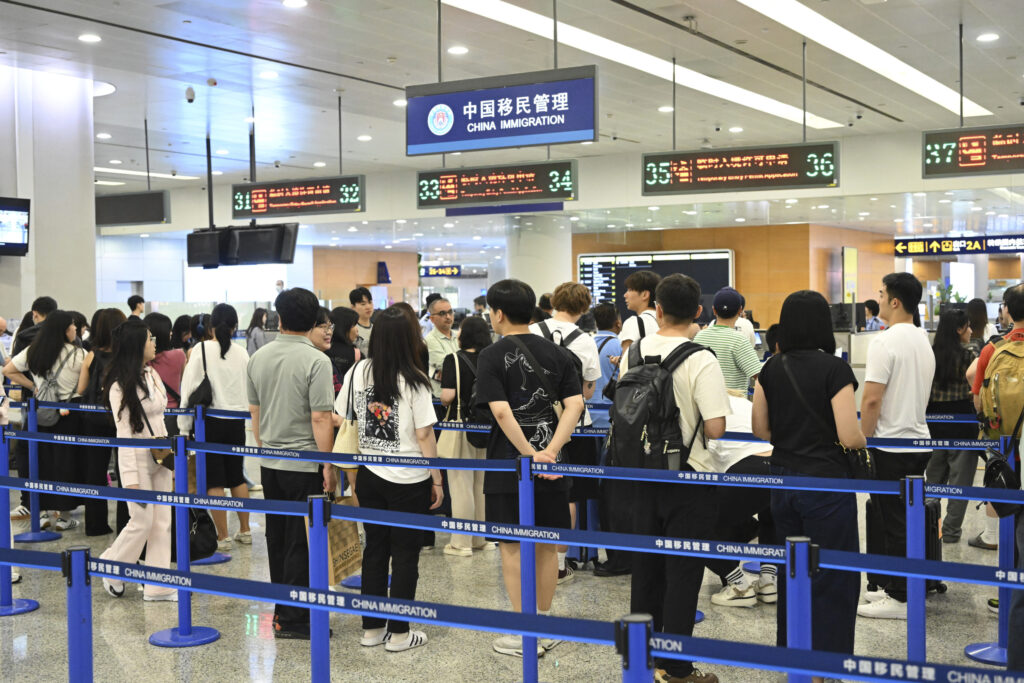China has expanded the list of nations whose citizens can enjoy visa-free travel to the country, while in U.S., the government is seeking to crack down on the number of foreign students on American campuses.
On Sunday, the Chinese government announced via state-run outlet Xinhua that it had begun trialing a policy which “unilaterally grants visa-free entry” to citizens from Brazil, Argentina, Chile, Peru and Uruguay.
The government originally announced its intention to ease travel restrictions for the five nations in mid-May.
Why It Matters
The expansion of visa-free travel to China comes as the country spars with the U.S. over the ability of its citizens to study at American colleges. President Donald Trump’s administration has said that pausing applications and revoking visas for Chinese students will “put America first, not China,” but Beijing has urged the government to reconsider the plan.
What To Know
The government said that individuals from Brazil, Argentina, Chile, Peru and Uruguay will now be able to enter China for up to 30 days for “business, tourism, family visits, cultural exchange, and transit.” In its announcement on Tuesday, Beijing described the move as “part of China’s broader efforts to expand visa-free access in line with its commitment to high-level opening-up,” and as signifying the deepening ties between China and Latin America.
The five nations have also participated in the Belt and Road Initiative, a project conceived in 2013 that has seen China invest in infrastructure in over 150 nations. As well as enhancing economic ties, the strategy is widely considered an effort by Beijing to increase China’s geopolitical sway and raise demand for its currency, the yuan.
According to business intelligence platform China Briefing, there are now 43 countries whose citizens enjoy unilateral visa-free travel to China, alongside 26 mutual visa exemption agreements applying to holders of ordinary passports. Several other nations, including Russia and Azerbaijan, are permitted visa-free travel for tour groups of no less than five people.
In addition, 54 countries including the U.S. and U.K are eligible for 240-hour visa-free transit, provided passport holders can show proof of their intention to travel to a third country.
The latest announcement follows the news that the Trump administration had instructed embassies around the world to stop scheduling appointments for student visas, part of a wider effort to curtail both legal and illegal immigration into the U.S.
In addition to halting international student visas, Secretary of State Marco Rubio announced last week the government’s plan to “aggressively revoke” visas for students from China.
What People Are Saying
The Chinese government in its Tuesday announcement, said: “Economic ties between China and Latin America have also deepened significantly. Bilateral trade has doubled over the past decade, surpassing 500 billion U.S. dollars in 2024. Chinese exports, including electric vehicles, are increasingly popular in the region, while Latin American goods such as Chilean cherries and Argentine beef have become Chinese household staples.
“China has been steadily adjusting and optimizing its visa policies to boost cross-border mobility,” it added. “Since late 2023, the country has rolled out a series of traveler-friendly measures.”
The U.S. State Department, in an announcement last week, said: “Under President Trump’s leadership, the U.S. State Department will work with the Department of Homeland Security to aggressively revoke visas for Chinese students, including those with connections to the Chinese Communist Party or studying in critical fields.”
What Happens Next?
The policy on visa-free access is set to remain in effect until May of next year.
As well as pausing student visas, the State Department said it plans on revising visa criteria “to enhance scrutiny of all future visa applications from the People’s Republic of China and Hong Kong.”
Read the full article here
